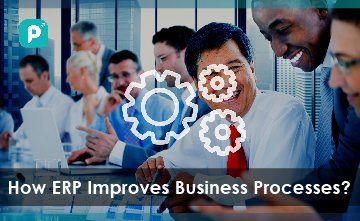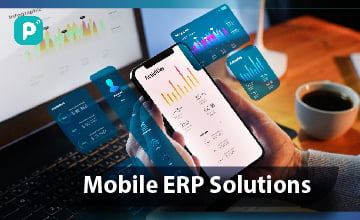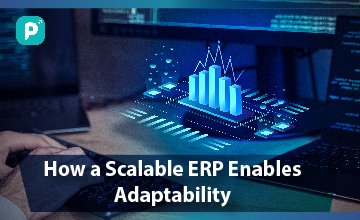ERP systems are like helpful tools for businesses. They make work easier by organizing tasks, doing things automatically, and providing instant information. When businesses use these tools, they save time, money, and make customers happier. Picking the right tool and using it well helps businesses grow and succeed in a competitive market. As technology gets better, these tools will keep being important for businesses to do well in a changing world.
Role of ERP in Streamlining Processes

Enterprise Resource Planning (ERP) is a powerful business management software that integrates various functions across an organization into a single, cohesive system. It encompasses processes such as finance, human resources, supply chain, and more.
Streamlining Workflows
- Centralized Data Repository: ERP systems act as a centralized hub for all data, providing a unified platform for different departments. This minimizes data silos and ensures consistency across the organization.
- Workflow Integration: ERP integrates and streamlines workflows, enabling seamless communication and collaboration between departments. This integration eliminates manual handoffs, reducing errors and delays.
Automating Repetitive Tasks
- Efficient Task Automation: ERP automates routine and repetitive tasks, freeing up employees’ time for more strategic and value-added activities. This leads to increased productivity and a reduction in manual errors.
- Workflow Standardization: By automating tasks, ERP ensures that processes are executed consistently according to predefined rules. This standardization enhances operational efficiency and reduces variability.
Providing Real-time Data Insights
- Immediate Access to Information: ERP systems offer real-time access to critical business data. This enables decision-makers to make informed choices based on up-to-the-minute information, contributing to agile and responsive decision-making.
- Data-driven Decision Support: ERP provides robust reporting and analytics capabilities, allowing organizations to derive meaningful insights from their data. This data-driven decision support enhances strategic planning and performance analysis.
Advantages of ERP-Driven Business Automation
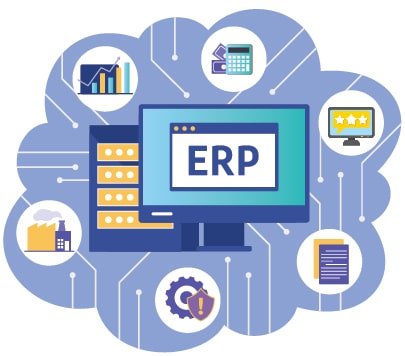
ERP-driven business automation yields numerous benefits, including increased operational efficiency through streamlined workflows, cost savings from reduced manual workload and efficient resource allocation, and improved customer satisfaction through faster response times and accurate order processing. These advantages collectively position organizations for success in a competitive business environment.
Increased Operational Efficiency
- Streamlined Workflows: ERP-driven automation optimizes business processes, eliminating redundancies and streamlining workflows. This results in increased efficiency as tasks are executed seamlessly and without unnecessary delays.
- Resource Utilization: Automation allows for better resource allocation, ensuring that personnel and assets are utilized effectively. This leads to improved productivity and a more efficient use of organizational resources.
Cost Savings
- Reduced Manual Workload: By automating repetitive tasks, ERP systems reduce the manual workload on employees. This not only frees up time for more strategic activities but also contributes to cost savings by minimizing the need for additional manpower.
- Efficient Resource Allocation: ERP-driven automation enhances resource allocation, preventing unnecessary expenditures. Organizations can optimize their budget by focusing on essential tasks, reducing operational costs, and increasing overall financial efficiency.
Improved Customer Satisfaction
- Faster Response Times: Automation accelerates processes, leading to faster response times to customer inquiries and requests. This increased efficiency contributes to heightened customer satisfaction as their needs are addressed promptly.
- Accurate Order Processing: ERP-driven automation ensures accuracy in order processing and delivery, reducing errors and enhancing customer experiences. The ability to provide reliable and timely services fosters trust and loyalty among customers.
Successful Implementation of ERP
Successful ERP implementation for business automation involves meticulous planning, strategic execution, employee training, and continuous monitoring. By adopting a comprehensive approach that prioritizes user engagement and ongoing optimization, organizations can ensure the sustained success of ERP-driven business automation initiatives.
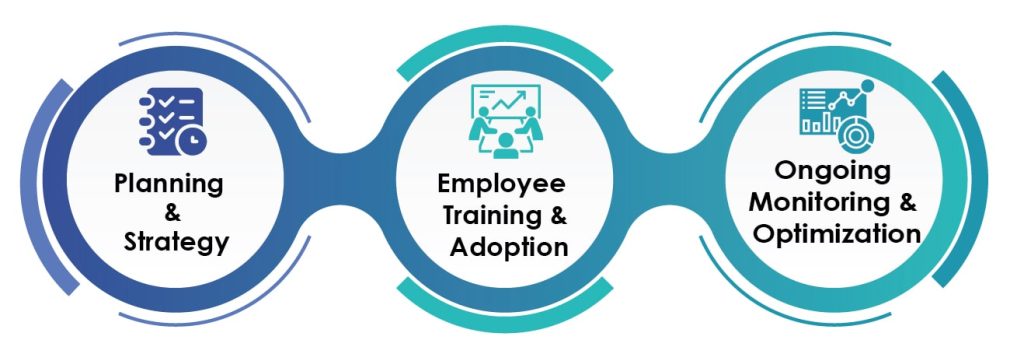
Planning and Strategy
- Needs Assessment: Begin with a thorough assessment of organizational needs and objectives. Identify areas where ERP-driven automation can bring the most significant benefits.
- Strategic Planning: Develop a detailed implementation plan, outlining the steps and milestones for integrating ERP-driven automation into business processes. This strategic planning ensures a well-organized and phased approach.
Employee Training and Adoption
- Comprehensive Training Programs: Provide extensive training programs for employees to familiarize them with the new ERP system and its automated features. Training is crucial for successful adoption and ensures that employees can leverage the system effectively.
- Change Management Support: Implement effective change management strategies to address potential resistance. Communicate the benefits of ERP-driven automation clearly and engage employees in the transition process to foster a positive attitude towards the changes.
Ongoing Monitoring and Optimization
- Continuous Evaluation: Establish mechanisms for continuous monitoring and evaluation of the ERP system’s performance. Regularly assess how well the system aligns with business goals and identify areas for improvement.
- Optimization Strategies: Implement optimization strategies based on monitoring results. This may involve fine-tuning processes, addressing bottlenecks, or incorporating new features to enhance overall system efficiency.
- User Feedback Incorporation: Encourage feedback from end-users and incorporate their insights into ongoing system improvements. User feedback provides valuable insights into the practical aspects of system usage and can guide further optimization efforts.
Future Trends
The future of ERP systems in business automation is marked by technological advancements, a dynamic shift toward cloud-based solutions, industry-specific customization, a focus on user experience, and enhanced data security measures. As the market continues to evolve, ERP systems will play a pivotal role in helping businesses stay competitive, adaptable, and compliant with the latest industry standards.
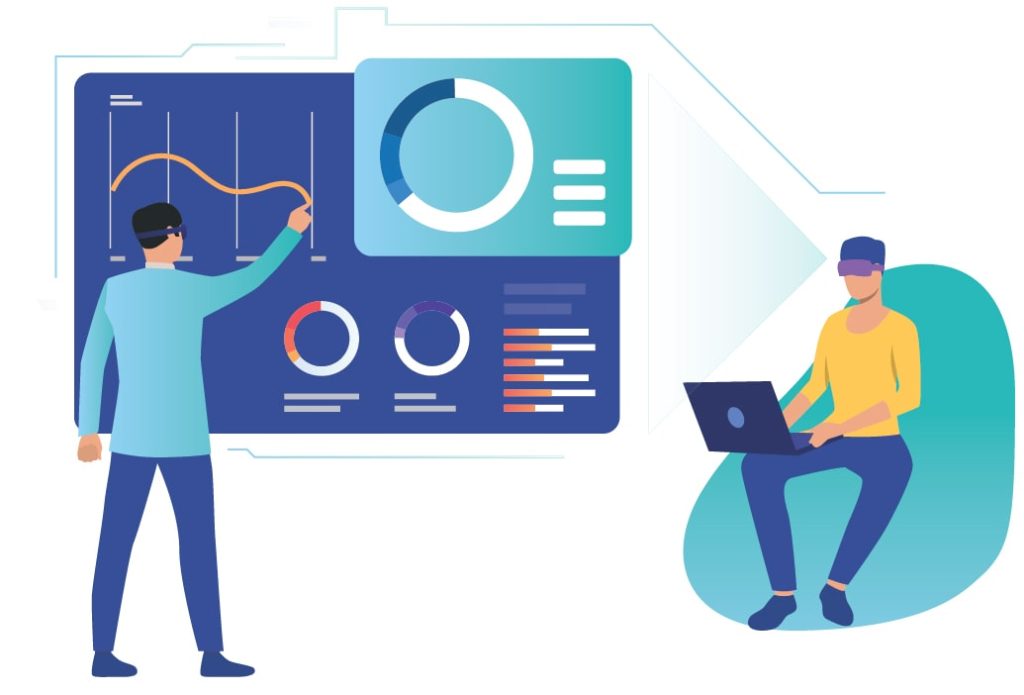
Technological Advancements
- Integration with Emerging Technologies: ERP systems are expected to integrate seamlessly with emerging technologies, including artificial intelligence (AI), machine learning (ML), and the Internet of Things (IoT). This integration will enhance automation capabilities and provide more advanced insights for decision-making.
- Cloud-Based Solutions: The future of ERP systems leans towards cloud-based solutions, allowing for greater flexibility, scalability, and accessibility. Cloud-based ERP enables businesses to adapt quickly to changes and take advantage of continuous updates and improvements.
Evolving Role of ERP in a Dynamic Market
- Focus on Industry-Specific Solutions: ERP systems will increasingly offer industry-specific solutions, catering to the unique needs of various sectors. This specialization ensures that businesses have tailored tools to address specific challenges within their industries.
- Greater Emphasis on User Experience: The user experience will become a central focus in ERP design. Intuitive interfaces, mobile accessibility, and personalized dashboards will enhance user adoption and satisfaction, contributing to more effective business automation.
- Enhanced Data Security Measures: As data security concerns grow, future ERP systems will incorporate more robust security features. This includes advanced encryption, multi-factor authentication, and secure APIs to protect sensitive business information.
- Adaptability to Regulatory Changes: ERP systems will evolve to provide better adaptability to regulatory changes. This is crucial in industries with frequent regulatory updates, ensuring businesses can maintain compliance seamlessly through automated processes.
Conclusion
As we explore the future trends of ERP systems in business automation, it’s evident that technological advancements, industry-specific solutions, and enhanced user experiences will shape the landscape. The move towards cloud-based solutions and a heightened focus on data security underscore the importance of adaptability in a dynamic market. The evolving role of ERP systems promises not only increased efficiency but also the agility needed for businesses to thrive in an ever-changing business environment. Embracing these trends positions organizations for a future where ERP-driven business automation becomes an indispensable asset for sustained success.
Ready to kickstart and expand your business in 2024? Explore all the essential information in one convenient spot by visiting our website!
All images belong to their respective owners. Please email [email protected] if removal is required.

